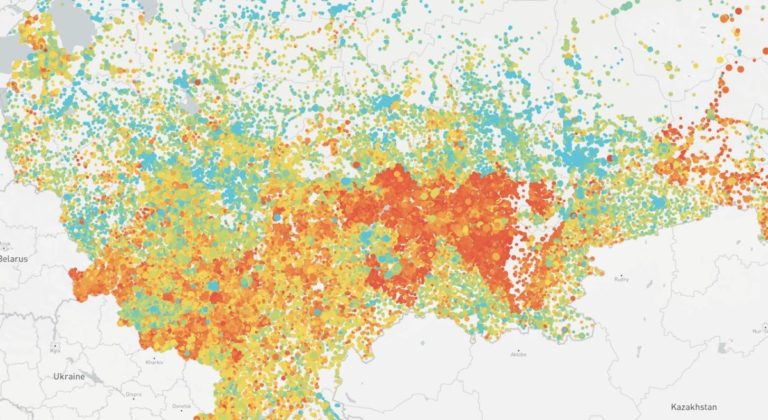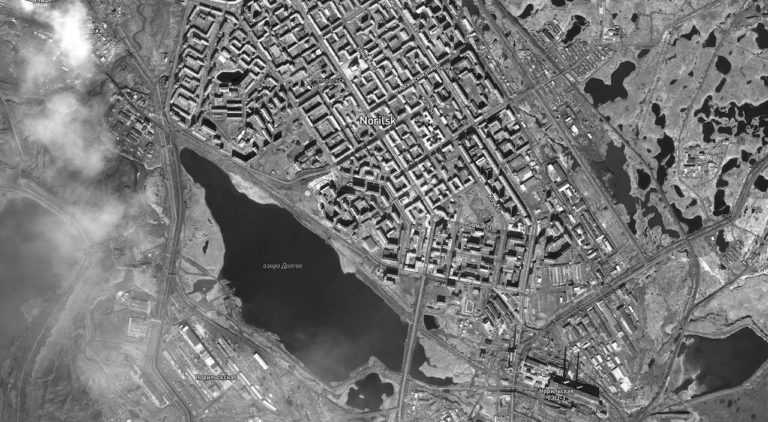The Russian language is not, in the narrower meaning of the term, politically correct. What does a translator do when faced with such aspects in a text? Pretend they aren’t there? And perhaps, by doing so, do an injustice to the authors and protagonists? That is certainly not the answer, says Maria Rajer, who calls for transparency and self-empowerment in translation work.
“Translation is like cleaning: you only notice it when it’s done badly,” a lecturer once told us during a translation seminar at university. The point she was making was that translators should produce a flowing text that reads well and contains nothing jarring to readers, at least not on a linguistic level. Seen this way, the translator’s job is to create the illusion that the text was originally written in the target language – and, in so doing, to make her work and herself as invisible as possible. To be a silent handmaid at the seemingly direct conversation between reader and author.
At first glance, there is nothing objectionable in calling for this, but as a strategy, it is not workable. It assumes, implicitly but still necessarily, that the reader and the author not only speak the same language, but actually inhabit the same world, sharing their languages’ frames of reference. But in reality, languages are not symmetrical, not at the syntactic or pragmatic level, not even at the lexical level. Very rarely do people use the same words to refer to the same things. A simple term evokes different associations in different people, even if they speak the same language. We do not associate the same trees with the word “tree” – subjective experience intervenes too early on. With people who speak different languages, there is a further aspect: every word brings along its own historical, cultural, social and political context, one which cannot simply be brushed aside. These contexts are not congruent either. To return to the cleaning metaphor: languages do not exist in a sterile room. (Fortunately, one is tempted to add, as anything else would be terribly boring.) Texts cannot be shifted point for point from one language to the next. This, then, is where the translator comes into play.
In July 2021, while translating (with my colleague Ruth Altenhofer) a Russian-language reportage about the catastrophic situation of refugees at the Belarusian-Polish border, I encountered expressions like “potok nelegalʹnykh migrantov”. There is an obvious literal translation: “illegaler Migrantenstrom” or perhaps “illegaler Flüchtlingsstrom” (flow of illegal migrants or refugees). The latter flows well, smoothly. But what happens when these terms appear in the German text? There may not be anything remarkable about them, at least linguistically speaking, but they are unambiguously politically marked for German readers. In German, “Fluchtbewegung” and “Migrationsbewegung” (refugee movement and migration movement) have become the established terms for this phenomenon; “Flüchtlingsstrom” dehumanises migrants and triggers an association with a natural disaster. Similarly, people now avoid the term “illegal migrants”, speaking instead of persons “entering [a country] without permission” (“unerlaubt einreisende”) or “illegal border crossings” (“illegale Grenzübertritte”). Although the use of these terms, which is part of a trend towards more politically-aware language usage, is comparatively new, it is nonetheless out of the question that an author writing in German would choose a term like “Flüchtlingsstrom” if she wanted to use a neutral term for the phenomenon. Used in the translation, such a term would automatically send a signal placing the text’s Belarusian author on the right of the political spectrum. Rightly so? No, because in Russian, “flow” and “illegal” applied to people are read as neutral; these terms are not jarring to the average reader. Thus, the same word evokes completely different political associations. This means that a translation that was symmetrical at the lexical level would cause misunderstanding between the author and the reader.
On the other hand, what would I, as a translator, be doing by using a politically correct German term that does not exist in Russian? Wouldn’t I be suggesting the existence of a dominant political context in Belarus that is not actually there (or not everywhere anyway, only among activists)? Conveying a false picture of Belarusian reality? In that case, would it not be better to use the literal translation and accept the risk of disgruntled readers? Or can I assume that the readers are sufficiently reflective and will allow for the context? This raises the eternal question of whether to translate in a naturalising or an alienating manner. In other words: should I bring the text closer to the reader, or should I encourage the reader to draw nearer to the foreign context?
The function of the text in question is the crucial factor here. The text in the case described above was a reportage. Thus, that specific journalistic text was written for the purpose of informing people, relatively quickly, about the situation on the Belarusian-Polish border. In this case, the relevance of the language-politics context is not as great. The reader’s main priority is to find out what is happening on the border. With a literary text though, a novel, for instance, one could assume that the reader might indeed be looking for an accurate depiction of political and social discourse. In such a case, it would be unacceptable to distort the existing situation by adjusting the language to reflect politically influenced usage conventions among speakers of the target language. Can one always draw a clear line, though? Of course not. Every decision needs to be preceded by an analysis: what is this specific text trying to do? Distinctions like journalistic versus literary and informative versus artistic can be helpful in this situation, but they cannot, on their own, resolve the question. The translator makes decisions by weighing the relevance of various aspects. And it is always decisions, in the plural, because these questions arise with nearly every sentence. The decisions that we translators make shape the reception process: they determine, literally, how the text is received by its readers. Thus our aim should not be to create the illusion of congruence but rather to make our work transparent. It matters that a text has been translated. Moreover, it matters by whom a text has been translated, because the translator’s own usage also plays a role. While my decision was certainly not based on the fact that I, personally, am opposed to dehumanising human beings, or referring to them as illegal, this attitude may have contributed to the fact that these elements became a focus of my attention.












